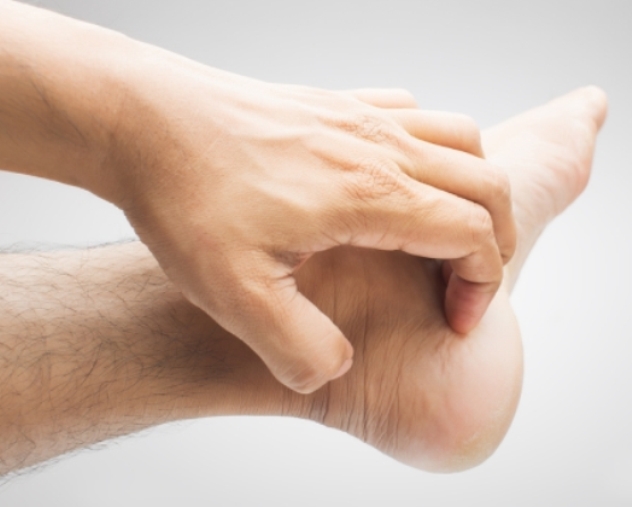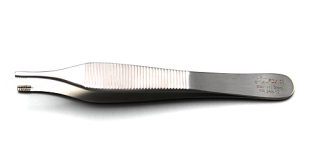Medical term for itchy ankles referred as “pruritus”. Mostly people ignore this medical condition but itching is actually the most common sign that a person has a dermatological or skin disorder. It is bit surprising but it may also be a primary indication of an internal systemic disorder such as disorders of the blood, diabetes mellitus and even cancer.
In humans, the itch receptors are exclusively found in the confines of the skin, cornea and mucous membranes. The mechanism of itchiness is like you feel itchiness, which is followed by sratching the affected area to relieve it and the cycle goes on. However, itchiness is not always limited to rashes and skin lesions. This kind of pruritus is termed as “essential pruritus”. It may be severe and can highly interfere with the activities of daily living.
Itchy ankles, if not treated properly and timely could lead to a more severe and alarming condition. Therefore, it is important to consider it a serious medical condition and try to know the ways to treat it. Although, to seek medical attention would be the safest and surest way to have the most appropriate treatment. We will discuss it later that how the causes for this condition may vary from person to person so if your friend has this problem, then it’s not necessary that you will also be fine with the similar treatment.

Itchy Ankles – Causes, Signs, Treatment
If you want to know about the causes and possible treatment of your itchy ankles, then continue reading, you will find all relevant information below
Itchy Ankles – Causes
The possible predisposing and contributing factors leading to the occurrence of itchy ankles are different and diverse. It may affect all age groups, may it be the infants, adults and the ones in their old age. The causes of itchy ankles may be categorized into two groups:
Extrinsic factors
The extrinsic factors that may lead to the development of itchiness in the ankles are listed below but remember, there may be other factors as well:
- The region or the place where the individual lives in, contribute as the most influential factor, like Asian people are not much affected by itchy ankles as western individuals are.
- Your footwear or socks also contributes to the development of itchy ankles. As these are the primary things that mostly comes in contact with the person’s ankle skin. Materials such as wool have a high probability of irritating the skin.
- Insect bites such as the bites of bed bugs and mites could be a reason which should be check as a first cause.
- If you are using some kind of band-aids, bandages and other adhesive materials that may have been in contact with the ankle’s skin for an extended amount of time, may also contribute to itchiness in the area.
- Sometime weather conditions such as too much heat (heat rashes) can also greatly influence to the development of itchy ankles.
- You should consider your cleansing products as well while searching a cause for your itchy ankles. Some products like soap and lotions contain sulfates may also contribute to the development of itchiness in the ankles.
Underlying medical conditions
Beside extrinsic factors, there are also a number of medical conditions due to which you may develop itchiness in the ankles. These medical conditions include:
- Excessive drying of the skin can cause itching and if dryness is the reason then you are more likely to have itching on other body parts also.
- Poor circulation to the lower extremities may also be a reason of experiencing itchy ankles.
- Scratching itself, which is result of itchy ankles, may lead to the release of more histamine, causing further itching; which ultimately results to the worsening of itchy ankles. This condition is called as “neurodermatitis”.
- Other medical conditions like xerotic eczema, contact dermatitis, atopic dermatitis, obstructive biliary disease, chronic renal failure, malignancies, Chron’s disease, Athlete’s foot and cholinergic urticaria are the most common reasons that cause the sensation of itchiness in the ankles.
Itchy Ankles – Treatment
There might be different causes behind this condition, as a result there are different methods to treat it as well. The most important is to make an appointment with your dermatologist. Some home remedies and tips include:
- Avoid its causes such as avoiding places where insects live, minimizing the use of harsh soaps, avoiding the use of ill fitting socks and wool materials.
- By applying cold compress to the affected area, you can prevent the occurrence of itchiness and scratching. The cold pack is usually applied to the area for 20 minutes.
- In order to relieve itchiness of the ankles, apply calamine lotion to the affected area, easily available in most pharmacies. It may be applied twice daily or as needed.
- A home remedy, mixture of ginger juice and oats found also helpful to reduce the itchiness.
- If you feel dryness along with itching then applying moisturizing lotion with menthol might be effective. It soothes the skin and prevents drying as well as itching of the ankle’s skin.
- For mild treatment of ankles which are itchy antihistamine pills can help. For eczema as well as psoriasis steroid hormones can be used.
 Health & Care Information
Health & Care Information 

